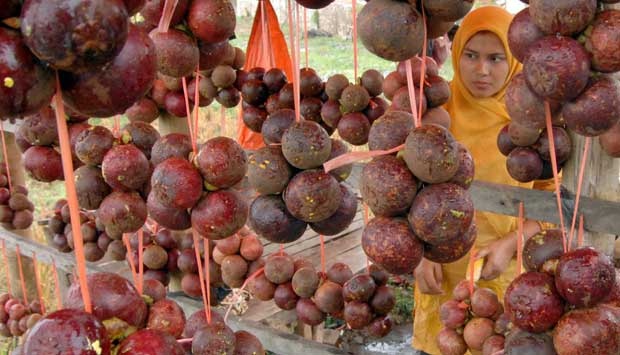Connection to Country Has Role in Climate Adaptation
Translator
Editor
25 January 2024 19:14 WIB

By: Linda Payi Ford, Charles Darwin University, Veronica Matthews, Sydney University, Sotiris Vardoulakis, Australian National University in Darwin
Building resilience by sharing Indigenous knowledge on climate change strategies can benefit all Australians.
Climate change is at a crisis point for Aboriginal and Torres Islander people in remote parts of Australia who are experiencing impacts differently from Australians living in cities on the eastern seaboard.
Increased temperatures, sea level rises, vegetation and wildlife changes and water quality issues are all adversely affecting how people live on, manage and use Country.
For Mak Mak Marranunggu people, who have a unique connection to Country and a keen eye for observation of the changes on our traditional homelands, it is clear how rapidly the climate is changing and how unpredictable weather conditions have become. These rapid changes have hindered our communities’ ability to appropriately adapt — like we have done during major climate transitions in the past.
This unreliability makes it very challenging for Mak Mak Marranunggu people in the Northern Territory to draw from old traditions. For example, there have been changes in the fruiting of native plants such as the local plums and native white apples. In some cases animals have changed their life cycle, from laying their eggs to birthing, to fit in with the weather, particularly when the wet season starts with the build up (usually around October) and in heavier monsoonal troughs.
On the Finniss River floodplains of Kurrindju in the Northern Territory, local sea level rise is impacting our ability to practise cultural traditions and caring for Country — we’re unable to visit to manage the land, saltwater and freshwater resources or to harvest traditional bush food.
Traditional fire management practices have suffered due to rapid growth of woody trees and weeds that make up the under-storage in savanna and floodplain country. Fire management has had to be modified according to the fuel loads of the new levels of vegetation, impacting native plants and animals including threatened species such as the northern quoll and bandicoots.
More worryingly, good, clean, deep water is becoming less accessible due to erosion from saltwater intrusion as the sea levels rise. Roads and construction also contribute to shallower waterways. This affects fisheries, crocodiles, crustaceans, molluscs and other animals, as well as degrading their habitats on the Finniss River and coastal floodplains. More waterways are drying up and struggling to hold good drinking water. While animals and people can travel elsewhere, plants cannot. And they are dying.
Climate change has a disproportionate impact on our mob. Torres Strait Islanders are at risk of having their lands and their culture washed away. In the centre of Australia, extreme heat and prolonged heat waves highlight the inadequate housing that exists in this region. Families can’t adequately shelter from heat that regularly passes 35 degrees.
On Warumungu Country (Tennant Creek), the design of remote community housing has not improved. There is a lack of community consultation on appropriate designs. Instead, new homes are generally besser-block and concrete with limited insulation. They are not elevated and do not have breeze-ways, having only small eaves and verandahs, without landscaping or outdoor shade. It’s impossible to escape from the heat and dangerous conditions particularly for anyone with chronic disease.
The greatest enabler for Aboriginal and Torres Strait Islander people is our knowledge. Indigenous knowledge has been here for more than 60,000 years as the oldest continuing living culture in the world. We know and understand the country with knowledge passed down from generations through our songs, dance, performance and our language.
The wisdom that First Nations people hold as a result of our cultural and spiritual connections to Country means we have a deep understanding of environmental systems and the changes being seen due to climate change. We have special insights into key issues like ecosystem health, protecting biodiversity and sustainable land management which in turn provide essential building blocks for human health such as clean air, well-functioning waterways and food security.
Through Indigenous Australians’ long attachment to living on Country, we are offered new ways to understand the contemporary events of climate change. The new realities of the unknown elements of climate change — pests and disease — are bearing down on us. Our instinct is to survive the changing elements of climate conditions and their impacts. How well we do this together is the challenge.
Through greater awareness and integration of Indigenous knowledge systems with other forms of scientific knowledge, we can all develop a better understanding of how to look after the environment and improve human health in the face of climate change. More Aboriginal and Torres Strait Islander people should be involved in the dialogue. That is what’s been missing in the past in discussions nationally on climate change, and that is one of the key aims of the Healthy Environments and Lives (HEAL) Network.
The network supports Indigenous leadership and collaboration in addressing the health impacts of climate and environmental change with practical, context-specific solutions.
Procedural Justice is required to address the impacts of climate change for First Nations people in a way that is fair and equitable. This is a qualitative process we can use to unpack the decision-making and Aboriginal governance processes to participate equally in the climate change debate and provide leadership on matters which disproportionately affect us. It is about ensuring First Nations people are included in these discussions from the beginning and that their knowledge systems and governance processes are respected and incorporated into policy making.
Originally published under Creative Commons by 360info™.
*) DISCLAIMER
Articles published in the “Your Views & Stories” section of en.tempo.co website are personal opinions written by third parties, and cannot be related or attributed to en.tempo.co’s official stance.























